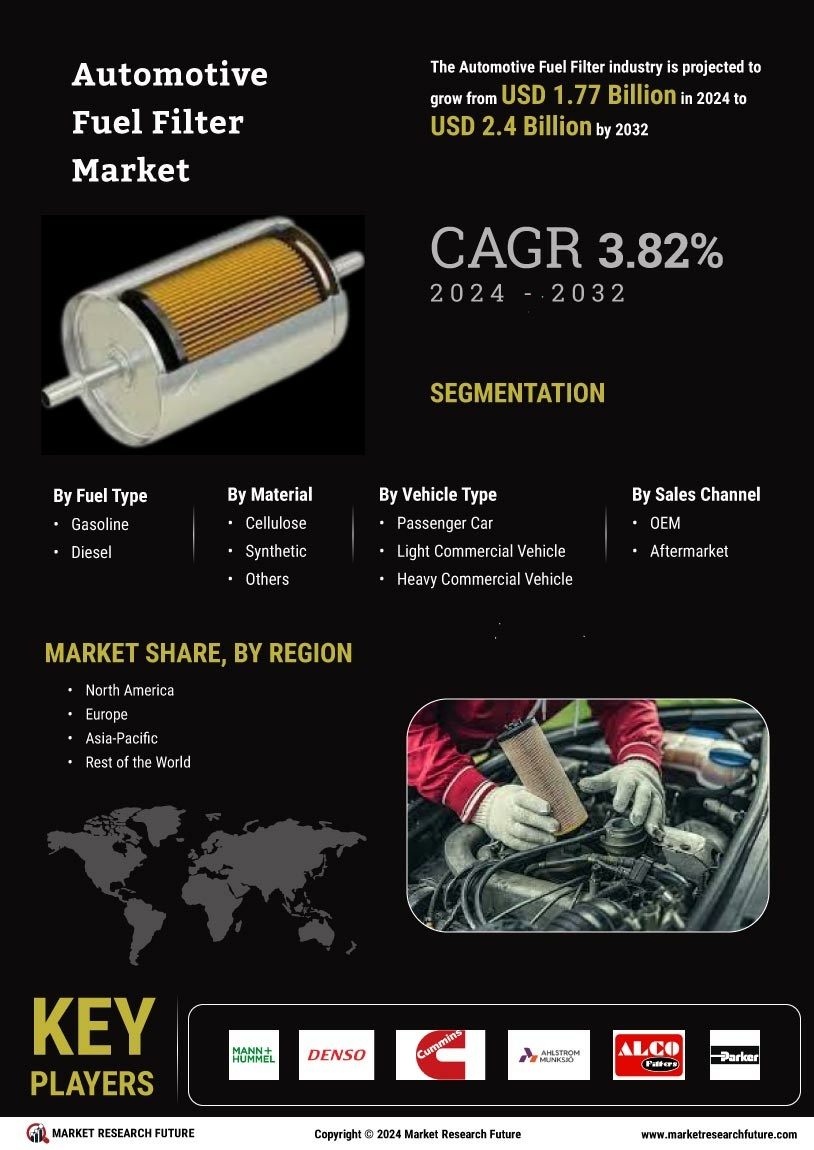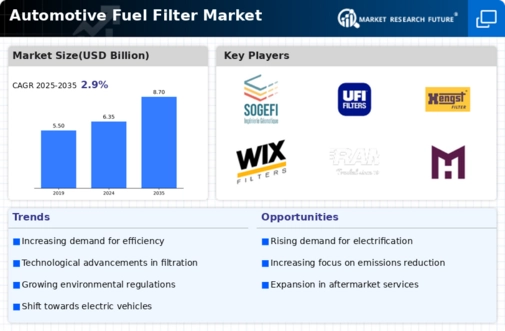Automotive Fuel Filter Market Summary
As per Market Research Future Analysis, the Automotive Fuel Filter Market was valued at 1.77 USD Billion in 2024 and is projected to grow to 2.67 USD Billion by 2035, with a CAGR of 3.82% from 2025 to 2035. The market is driven by increasing vehicle production, stringent environmental regulations, and rising consumer demand for fuel efficiency. Key players are focusing on innovation and sustainability to meet these demands, leading to advancements in fuel filtration technologies.
Key Market Trends & Highlights
The Automotive Fuel Filter Market is evolving with significant trends and opportunities.
- Market Size in 2024: USD 1.77 Billion; projected to reach USD 2.67 Billion by 2035.
- Passenger Cars segment valued at USD 2.55 Billion in 2024; expected to grow to USD 3.39 Billion by 2035.
- North America market value in 2024: USD 2.1 Billion; projected to increase to USD 2.8 Billion by 2035.
- Rising demand for electric and hybrid vehicles presents new opportunities for specialized filtration technologies.
Market Size & Forecast
| 2024 Market Size | USD 1.77 Billion |
| 2035 Market Size | USD 2.67 Billion |
| CAGR (2025-2035) | 3.82% |
Major Players
Denso, Mahle, K and N Engineering, ACDelco, WIX Filters, Mann+Hummel, Sakura Filter, Edelbrock, Fleetguard, Fram, PurFlux, AhlstromMunksjo, Donaldson Company, Bosch





















